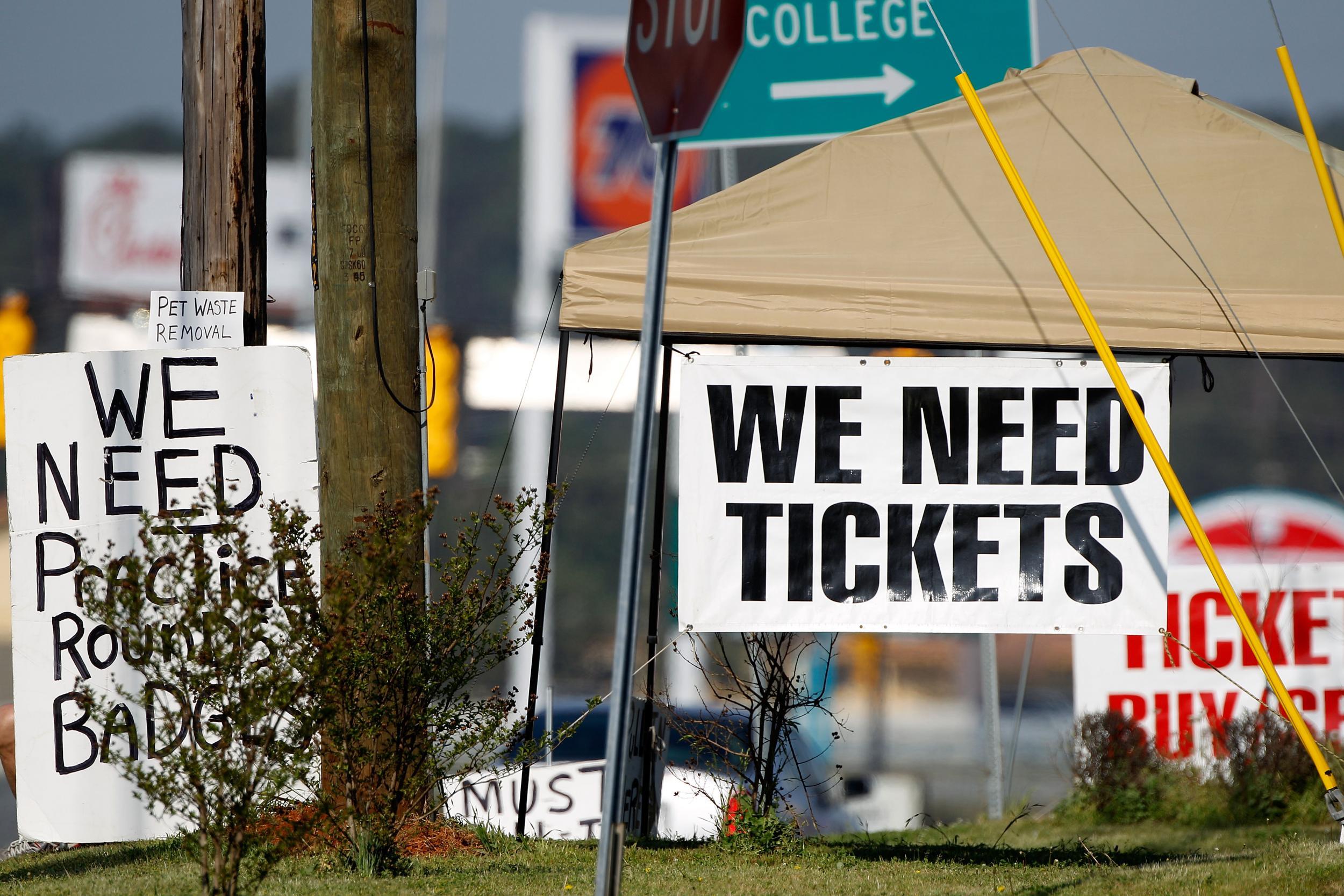The enduring nature of ticket touting presents a curious economic paradox
If many attendees are clearly willing to pay so much more, why are artists, organisers and venues charging below the market rate and leaving money on the table?


Your support helps us to tell the story
From reproductive rights to climate change to Big Tech, The Independent is on the ground when the story is developing. Whether it's investigating the financials of Elon Musk's pro-Trump PAC or producing our latest documentary, 'The A Word', which shines a light on the American women fighting for reproductive rights, we know how important it is to parse out the facts from the messaging.
At such a critical moment in US history, we need reporters on the ground. Your donation allows us to keep sending journalists to speak to both sides of the story.
The Independent is trusted by Americans across the entire political spectrum. And unlike many other quality news outlets, we choose not to lock Americans out of our reporting and analysis with paywalls. We believe quality journalism should be available to everyone, paid for by those who can afford it.
Your support makes all the difference.Back in 1987 The Independent wrote a famously provocative editorial in praise of ticket touts.
“The tout offers a genuine service and takes real risk of loss in the pursuit of his frequently modest profit,” we argued.
“If the Queen knighted touts rather than civil servants she would do more for economic growth than all the government’s departments and quangos put together.”
The prospect of a knighthood for touts today seems rather remote. Incarceration in the Tower of London feels more likely.
Last week the creative industries minister, Matthew Hancock, unveiled legislation designed to crush the new breed of highly organised scalpers who use automated software to acquire tickets for concerts and sporting events in bulk the minute they go on sale online, and then flog them on at inflated prices to the real fans who missed out (usually also via online marketplaces).
Whether The Independent’s editorial writers of 1987 would have saluted the new breed of industrial-scale digital touts in the same way they admired their analogue predecessors is open to question.
Yet the existence of touting, in whatever form it takes, raises an interesting economic puzzle. Considerable markups in the secondary market implies concert and sporting tickets are being priced by event organisers at below the equilibrium price, where supply meets demand. If the tickets were priced “correctly” in the first place there would be little profit margin for the scalpers.
So why don’t the artists and venues charge more to extract that value for themselves, rather than allowing it to go to fans (many of whom pay less than they would actually be prepared to) or to ticket touts? Why are they leaving money on the table?
The answer probably lies in the particular nature of concerts as economic events. As the US economist Alan Krueger has pointed out, buying a ticket for a pop concert is a different kind of economic transaction from buying your weekly groceries, or purchasing a new TV. First, you’re not buying a good but an experience. Second it’s a particular type of experience: one freighted with social and cultural meaning.
“In many respects, concerts could be thought of as a giant block [neighbourhood] party instead of a traditional market,” he explains. “While it is socially appropriate to charge neighbours some fee for coming to a block party to pay for the provisions, it is inappropriate to charge them enough to make a hefty profit… Many artists have been reluctant to raise prices to what the market will bear for fear of garnering a reputation of gouging their fans.”
This is why pop stars like Ed Sheeran and Adele themselves often ostentatiously condemn gouging by touts, making sure to dissociate themselves from the taint of exploitation.
There are other nuanced commercial motives too. At occasions like music concerts and sporting events the atmosphere matters in terms of the quality of the experience. This was cited by Vincent Kompany, the thoughtful Manchester City captain, last week when he argued that Premier League football clubs should reduce ticket prices for fans. Kompany claimed this would enable more of the less well-off, but more noisy, supporters to attend. He made the shrewd additional point that a better atmosphere at live games should enhance the value of the already highly lucrative TV broadcast rights, since it makes for a better spectacle.
Some might dismiss all this as hypocrisy from neurotic pop stars and pampered footballers. Others will see it as a charade forced on event organisers by the need to pander to economically-illiterate fans who don’t understand market forces.
Or you might regard it another example of how the simplistic tools of supply and demand are inadequate when it comes to explaining how our sophisticated, socially embedded, market economy often actually works. As a Victorian showman once said: “You pays your money and you takes your choice”.
Join our commenting forum
Join thought-provoking conversations, follow other Independent readers and see their replies
Comments